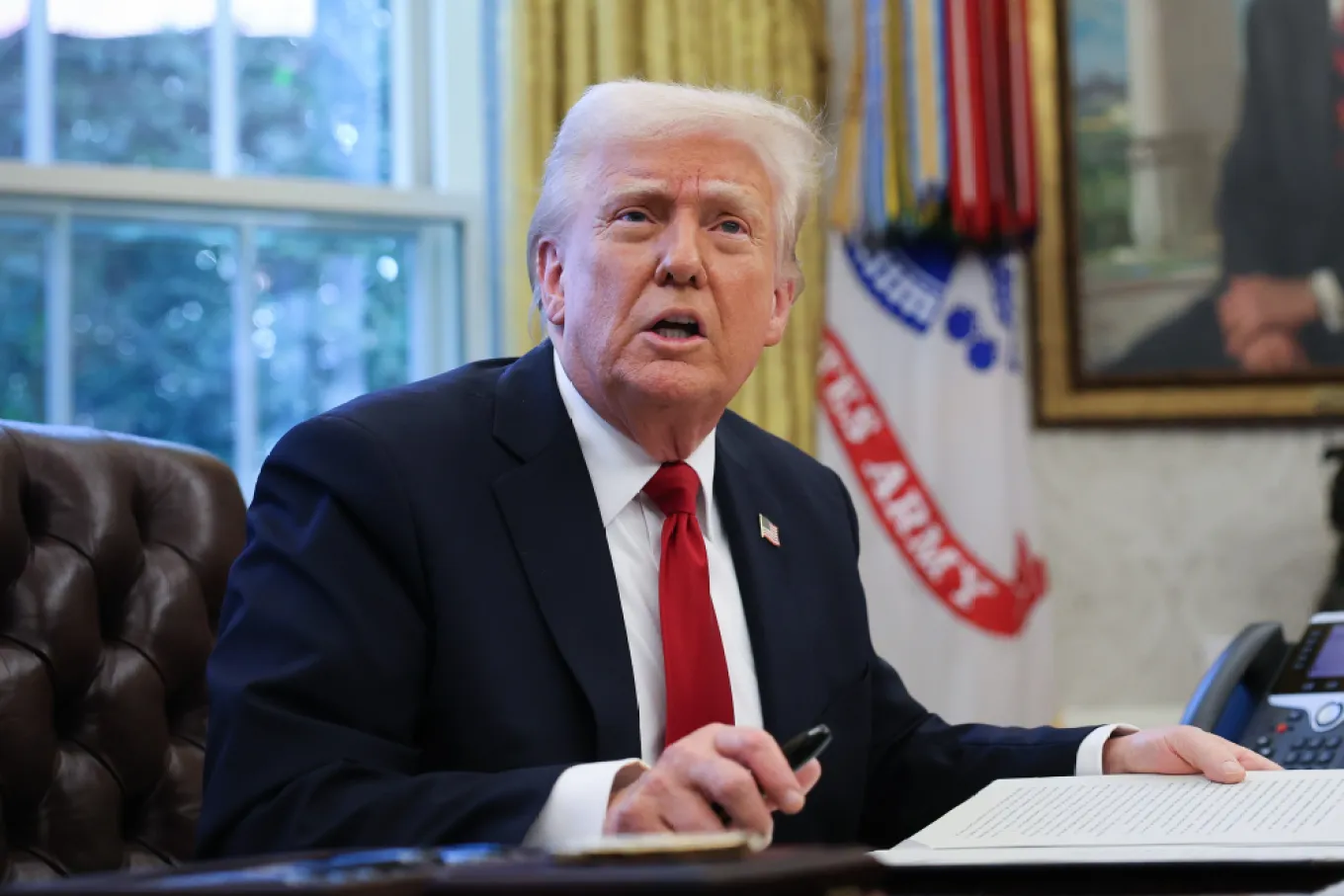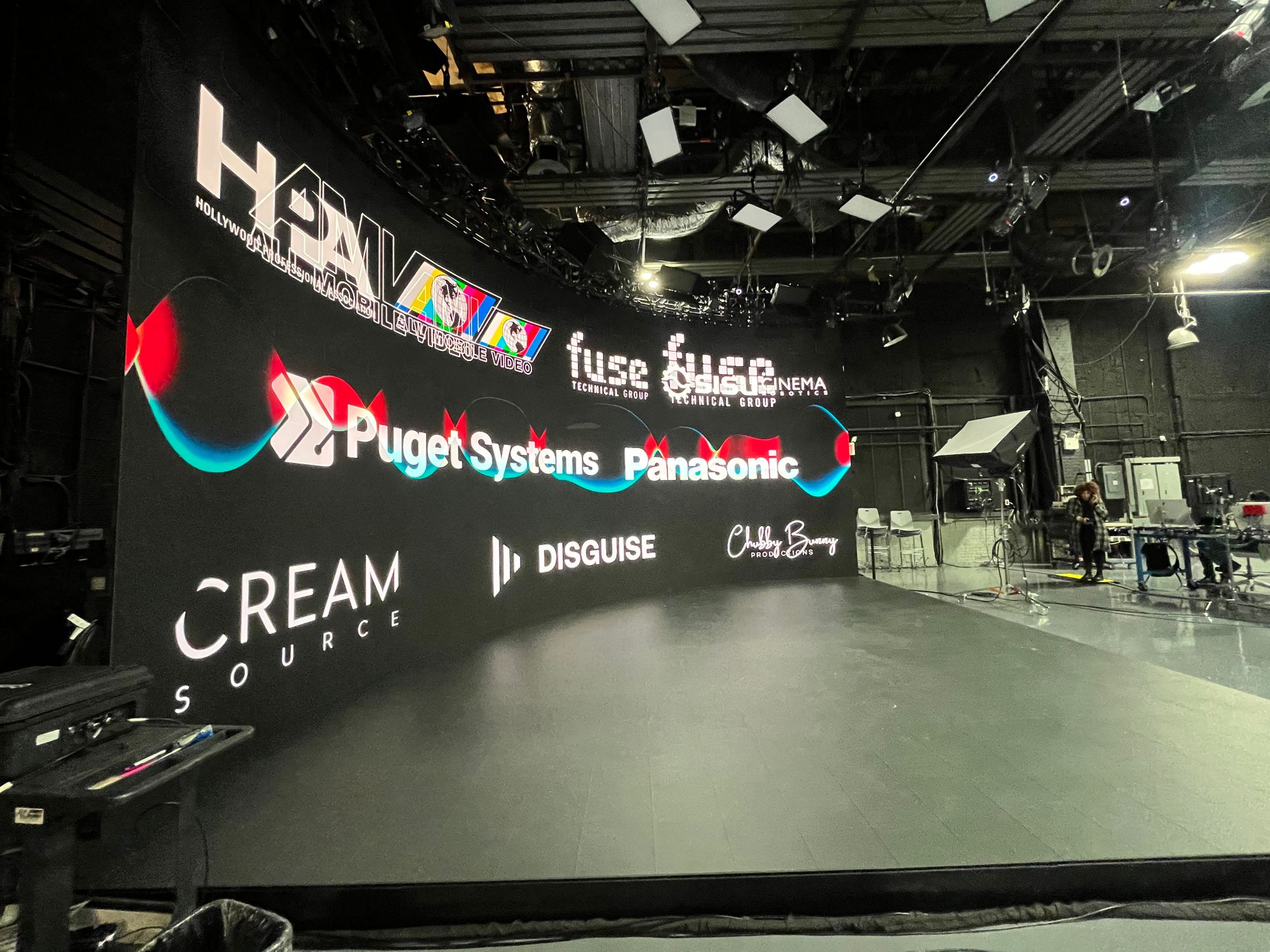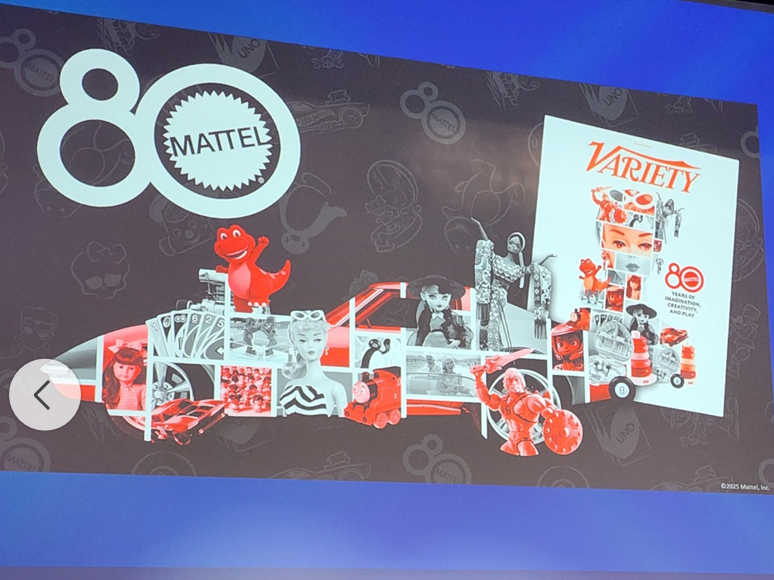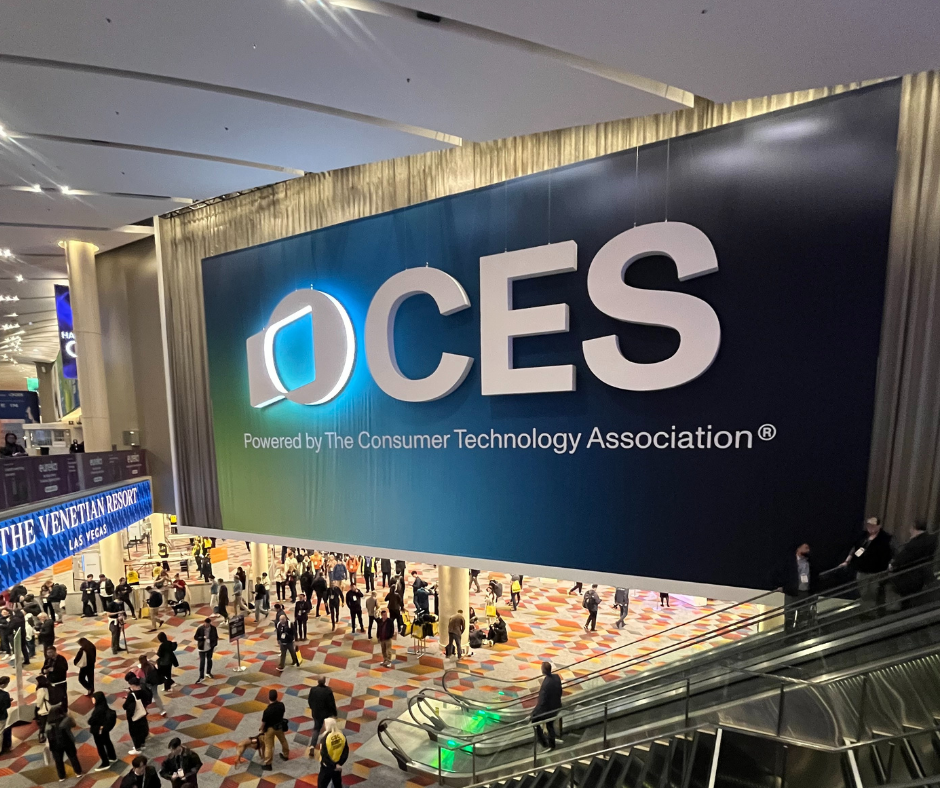[트럼프 관세] 창작 산업에 직접 충격은 적지만…경기 침체 시 ‘이중 타격’ 우려(Trump’s Tariffs: Hollywood Faces Limited Direct Impact, but Potential Recession Could Deal a ‘One-Two Punch’)
도널드 트럼프 미국 대통령이 4월 3일(현지시간) 전격적으로 발표한 ‘상호주의 관세(Reciprocal Tariffs)’가 미국 미디어·엔터테인먼트 업계에 직접적인 비용 상승을 일으키진 않을 것으로 전망된다. 그러나 이로 인해 발생할 수 있는 경기 침체와 소비 위축, 광고 예산 축소가 할리우드 전반에 큰 타격을 줄 수 있다는 분석이 나온다.
4일 미국 증시에서도 이러한 불안감이 반영되며 주요 지수는 급락세를 보였다. 소비 심리 위축이 가속화할 경우, 미디어·엔터테인먼트 업계 역시 ‘소비 둔화’와 ‘광고 축소’라는 이중고에 직면할 수 있다는 우려다.
Trump’s Tariffs: Hollywood Faces Limited Direct Impact, but Potential Recession Could Deal a ‘One-Two Punch’
Recent “reciprocal tariffs” announced by President Trump are not expected to impose immediate, direct costs on most media and entertainment companies, which typically rely on content and services rather than physical goods. However, industry experts warn that the broader economic fallout—particularly a potential recession—could have serious repercussions for Hollywood through reduced consumer spending and advertising cutbacks.

직접 영향은 제한적…“주요 매출원이 ‘굿즈’ 아닌 콘텐츠”
투자회사 모닝스타의 매튜 돌긴 수석 연구원은 버라이어티와의 인터뷰에서 “애플이나 로쿠(Roku)처럼 하드웨어 매출 비중이 큰 기업이 아니라면, 미디어·엔터 산업에는 즉각적인 비용 증가 영향이 크지 않을 것”이라고 진단했다. 대부분의 엔터테인먼트 기업은 물리적 제품 판매보다 콘텐츠 및 서비스로 수익을 낸다는 점에서, 관세로 인한 ‘직격탄’은 상대적으로 덜하다는 분석이다.
하지만 PwC의 TMT(통신·미디어·기술) 부문 수석인 CJ 방아(CJ Bangah)는 버라이어티와의 인터뷰에서 “문제는 관세가 전반적인 물가 상승과 소비 위축으로 이어질 경우”라며 “소비자 입장에서 지갑을 닫기 시작하면 가장 먼저 줄이는 것이 미디어·엔터테인먼트 지출”이라고 지적했다.
Limited Direct Costs for Most Media & Entertainment Players
According to Matthew Dolgin, a senior analyst at Morningstar, companies like Apple and Roku that generate significant revenue from hardware sales may feel the impact of tariffs more directly.
Most media and entertainment firms, however, are less reliant on physical product sales. Instead, they face indirect risks if consumers cut back on entertainment spending amid higher costs of living.
광고 시장도 ‘휘청’…“위기 때 마케팅 예산 줄이면 더 큰 타격”
전문가들은 관세로 인해 경제가 침체 국면에 접어들면 광고 시장도 위축될 가능성이 높다고 입을 모았다. CJ 방아는 버라이어티와 인터뷰에서 “광고비는 미디어·엔터 업계 수익의 큰 부분을 차지한다”며 “만약 기업들이 광고 예산을 줄이면 업계 전반이 ‘이중 타격’을 받을 것”이라고 전망했다.
그렇다고 해서 콘텐츠 품질을 낮추거나 마케팅을 극단적으로 축소하는 것은 위험하다는 조언도 뒤따른다.
방아는 “침체 국면일수록 콘텐츠 품질과 사용자 경험을 유지·개선하고, 효율성을 높이는 데 집중해야 한다”며 “연구 결과, 침체기에 마케팅 예산을 무리하게 줄인 기업들이 결국 더 어려움을 겪는 경우가 많았다”고 설명했다.
Risk of Lower Consumer and Ad Spending
CJ Bangah, principal at PwC’s telecom, media, and technology practice, warns that “media and entertainment is often one of the first areas consumers trim when finances tighten.”(interview with Variety)
A broad pullback in advertising budgets—crucial to many media companies—could further compound the industry’s challenges, leading to a “one-two punch” scenario.
주가 급락한 디즈니·워너브러더스디스커버리…“관광·레버리지 리스크”
4일 미국 증시에서 디즈니의 주가는 9.3%, 워너브러더스디스커버리(WBD)는 13.3% 하락했다. 라이브네이션(-6.4%), 로쿠(-15.6%) 등 주요 미디어·엔터주도 광범위한 매도세에 휩쓸렸다.
디즈니의 경우 테마파크 사업이 회사 이익의 상당 부분을 차지하기 때문에, 경기 침체 시 관광 수요 감소로 직접 타격을 입을 가능성이 제기됐다. 돌긴 연구원은 “경기 침체가 오면 디즈니파크 방문객이 감소할 수 있고, 이는 실적에 악영향을 줄 것”이라면서도 “스트리밍 사업의 성장세가 일정 부분 이를 상쇄할 수도 있다”고 밝혔다.
WBD 주가 하락은 높은 부채 부담이 원인으로 지목됐다. 돌긴은 “부채가 많은 기업들은 금리 인상과 신용경색 우려에 민감하다”며 “WBD의 급락은 그 영향이 크다”고 설명했다.
한편, 로쿠의 경우 중국·동남아·멕시코·브라질 등에서 생산되는 하드웨어(셋톱박스·스마트TV)가 관세 대상이 될 수 있으나, 이 사업에서 적자가 나고 있고 주 수익원은 광고라는 점에서 ‘직접 충격’은 상대적으로 덜할 것으로 평가됐다. 다만 광고 시장 위축 시 역시 타격을 받을 수 있어 시장의 전망은 밝지 않다는 의견이다.
Why Cutting Marketing or Content Quality Is Dangerous
In an economic downturn, experts advise companies not to scale back too heavily on content quality or user experience. Historically, those that maintain marketing and brand visibility fare better once the economy recovers.
“관세는 미국 소비자∙기업에 대한 ‘세금’…1920~30년대 대공황 시대로 되돌아갈 수도”
가전업계 등은 트럼프 대통령의 관세 정책에 거세게 반발하고 있다. CES를 주최하는 미국 컨슈머테크놀로지협회(CTA) 게리 샤피로 회장은 “이처럼 전면적이고 상호주의적인 관세는 미국 내 소비자들과 기업에 대한 대규모 세금 인상과 다름없다”며 “물가 상승과 일자리 감소, 심지어 경기 침체까지 촉발할 수 있다”고 강하게 비판했다.
샤피로 회장은 이어 “1920~30년대에 대공황을 키운 스무트-홀리 관세법 시절로 돌아갈 수 있다”며 “저소득층과 성실히 일하는 노동자들이 가장 큰 피해를 볼 것이고, 워싱턴 정가의 정치인들도 이로 인한 책임을 피하기 어려울 것”이라고 경고했다.
트럼프 대통령의 ‘해방의 날(Liberation Day)’ 관세 발표 이전부터 미국 소비 심리는 이미 하락세를 보이고 있다. 밀켄 연구소의 매기 스위텍 선임 연구원은 “4개월 연속 소비자 신뢰지수가 떨어지는 상황에서 관세 소식이 추가적인 시장 충격을 줄 수 있다”며 “유럽 등 해외 시장에서도 미국 제품과 콘텐츠에 대한 여론이 악화될 가능성이 있어, 장기적으로 할리우드에 어떤 영향을 미칠지 주시해야 한다”고 말했다.
한편 전문가들은 “경제가 위축되는 시점에 미디어·엔터테인먼트 업계가 어떤 대응 전략을 취하느냐가 앞으로의 성패를 가를 것”이라고 입을 모았다. 콘텐츠 품질 제고, 해외 시장 다변화, 비용 효율화 등으로 ‘침체 리스크’에 선제적으로 대비해야 한다는 지적이다.
Potential Hotspots: Theme Parks, Concerts, and Heavily Leveraged Firms
Disney could see theme-park traffic decline and, possibly, fewer international visitors due to strained foreign relations and consumer sentiment.
Live Nation may be vulnerable as concert attendance is often viewed as a luxury.
Warner Bros. Discovery (WBD) faces investor worries about its debt levels, which become riskier if credit tightens.
Roku, reliant on international manufacturing for its devices, could be exposed to higher costs, though its primary revenue comes from advertising rather than hardware sales.
Wider Economic and Political Implications
The Consumer Technology Association (CTA) criticizes the tariffs as “massive tax hikes on Americans” that risk fueling inflation, job losses, and a potential recession—echoing the protectionist Smoot-Hawley tariffs of the 1930s.
Some analysts note that shifting public opinion overseas—particularly in Europe—could impact the global perception of American content in the longer term.
Despite the initial notion that direct costs may be small, the overarching concern is that a recession triggered by these tariffs would significantly dampen both consumer spending and advertising revenue, posing real risks for Hollywood’s bottom line.
[트럼프 관세와 한국 콘텐츠 업계]
트럼프 관세는 한국 콘텐츠 업계 또한 일정 부분의 여파를 무시할 수 없다는 분석이 제기된다. 다만 한국 드라마·영화·음악 등 무형의 디지털 콘텐츠 자체가 직접적인 관세 대상이 되는 경우는 드물기 때문에, ‘직접 타격’보다 전반적인 경기 위축에 따른 간접 영향을 주목해야 한다는 목소리가 크다.
1. 무형 콘텐츠에 대한 ‘직접 관세’는 거의 없어
직접 수출입 제품이 아닌 콘텐츠 서비스
한국 드라마·영화·음악은 주로 온라인 스트리밍 혹은 글로벌 배급(극장, 방송사 등) 형태로 수출된다. 물리적 제품(굿즈, 음반)도 일부 존재하지만, 과거와 달리 디지털 다운로드나 스트리밍이 주류이므로 상품 자체에 관세를 부과하는 사례는 제한적이다.
저작권 라이선싱 분야
트럼프 관세가 주로 물리적 상품(가전, 자동차 부품 등)에 초점을 맞추고 있어, 지식재산권(IP) 라이선싱 계약 자체에는 직접 영향이 적다는 것이 중론이다.
2. ‘경기 침체 → 소비 위축’에 따른 간접 영향
2-1. 스트리밍 투자·광고 시장 축소 가능성
스트리밍 ·방송사의 투자 여력 감소
관세로 인한 원가 상승, 물가 상승 등이 미국 경제 전반을 압박하면, 넷플릭스·디즈니플러스 등 글로벌 스트리밍 서비스가 투자·제작 비용을 재조정할 가능성이 있다. 그 결과 해외(특히 한국) 콘텐츠에 대한 투자 규모가 줄어들 수 있다는 우려가 존재한다.
광고 시장 위축
경기 침체 시 광고비가 빠르게 축소되는 경향이 있다. 광고가 주요 수익원인 미국 방송사·플랫폼의 경우, 예산 삭감이 불가피해진다면 외부 콘텐츠 구매나 신규 IP 개발에 대한 투자 역시 영향을 받을 수 있다.
2-2. 콘서트·팬미팅 등 오프라인 이벤트 수익 감소
소비자 지갑이 얇아진다
관세로 인한 물가 상승, 실질소득 하락 등이 이어지면, 한류 콘서트·팬미팅과 같은 오프라인 행사에 대한 티켓 구매력도 약화될 수 있다.
부가수익 감소
콘서트 굿즈, 현장 판매 등은 직접 상품에 대한 관세 영향보다는 소비 심리 둔화가 더 큰 변수다. 팬덤의 충성도가 높다고 해도 전반적인 경기 부진이 길어지면 수요가 줄어들 가능성이 있다.
3. 한국 전자·IT 기업 동반 타격 시, 시너지 축소 우려
삼성·LG 등 전자기업의 관세 영향
TV·스마트폰·가전 등 미국 수출 비중이 높은 한국 기업이 타격을 받으면, 마케팅·스폰서십 등 콘텐츠 업계와의 협업 예산이 축소될 가능성이 있다.
해외 시장 개척 프로젝트 위축
전자·통신·IT 기업들은 글로벌 시장 개척을 위해 K-팝·K-드라마 등을 결합한 마케팅 활동을 활발히 펼쳐 왔다. 만약 관세 부담으로 인해 해당 기업들의 해외 마케팅 규모가 축소된다면, 결과적으로 한국 콘텐츠의 글로벌 확산 속도도 더딜 수 있다.
4. 글로벌 여론 변화: 한류 문화 확산에 변수?
‘미국과의 통상 분쟁’ 심화 시 파급효과
미국의 관세 정책이 여러 국가와 갈등을 유발할 경우, 국가 간 문화교류 분위기 역시 영향을 받을 수 있다. 한국 콘텐츠는 전 세계적으로 수요가 높지만, 정치·외교적 충돌이 장기화되면 해외 시장 개척 비용이 증가할 수 있다.
현지 반응 모니터링 중요
유럽, 미주 등 주요 지역에서 미국 관세 정책에 대한 불만이 커질 경우, 글로벌 소비자들의 문화·콘텐츠 소비 트렌드에도 미묘한 변화가 생길 수 있다. 한국 콘텐츠 기업들은 정책 변화와 소비자 인식 변화를 주시할 필요가 있다.
5. 대응 전략: 품질 제고 및 시장 다변화
지속적인 콘텐츠 투자
경기 침체 시에도 콘텐츠 품질과 브랜드 가치는 장기 경쟁력의 핵심이다. 무작정 비용을 줄이기보다는, 작품 완성도와 마케팅 효과를 극대화할 수 있도록 효율적 예산 운용이 요구된다.
새로운 플랫폼·지역 발굴
중국·미국 등 일부 시장 의존도가 높았던 한국 콘텐츠 업계는 동남아, 중동, 유럽 등 다양한 시장을 겨냥한 전략을 추진할 필요가 있다.
글로벌 협력 강화
글로벌 OTT, 음악 플랫폼, 게임사 등과의 합작 프로젝트를 확대해 위험 분산 및 안정적 수익 확보 방안을 모색해야 한다.
트럼프 관세 자체가 한국 콘텐츠에 대해 직접적으로 세금을 부과하는 구조는 아니지만, 전 세계적 경기 둔화 가능성과 이에 따른 광고·소비 지출 축소가 K-콘텐츠 산업에도 부담을 줄 수 있다는 우려가 있다. 한국 콘텐츠 업계는 콘텐츠 경쟁력 강화와 해외 시장 다변화를 통해 관세발(發) 글로벌 경기 변동성에 대응해야 할 것으로 보인다.
[Trump’s Tariffs and Their Impact on Korea’s Content Industry: Limited Direct Hit, but Potential Global Economic Slowdown Raises Red Flags]
With the former U.S. President Donald Trump’s “reciprocal tariffs” having a broad impact on trade for many countries, experts note that Korea’s content industry will inevitably feel some effects. While Korean dramas, films, and music themselves are rarely subject to direct tariffs (as they are primarily intangible digital content rather than physical goods), the indirect impact via a broader economic downturn could still be significant.
1. No Direct Tariffs on Intangible Content
Content Services, Not Physical Goods
Korean content—dramas, films, and music—is largely distributed through online streaming (OTT) services or global distribution (movie theaters, TV networks). Physical products (merchandise, albums) do exist but are less common due to the shift to digital streaming and downloads. Hence, few cases involve duties on these goods.
Copyright Licensing
Tariffs under Trump’s policy mainly target physical merchandise (electronics, auto parts, etc.), so licensing contracts for intellectual property (IP) are unlikely to face a direct tariff burden.
2. Indirect Impact from an Economic Slowdown
2-1. Possible Decline in Streaming Investment and Ad Spending
Reduced Investment Capacity
Higher costs and inflation resulting from tariffs could weigh on the U.S. economy. If OTT services such as Netflix and Disney+ respond by scaling back production and licensing budgets, overseas content investments (including Korean content) might shrink.
Advertising Market Contraction
Advertising budgets are often among the first to be cut in a recession, which would affect broadcast networks and platforms dependent on ad revenue. This, in turn, could reduce their capacity to purchase or develop new external IP.
2-2. Decreased Revenue From Offline Events Like Concerts and Fan Meetings
Lower Consumer Spending
Tariff-driven inflation and declining real incomes could lead to lower ticket sales for concerts and fan meetings—key revenue streams for Hallyu (Korean Wave) artists.
Reduced Secondary Earnings
While goods sold at these events (merch, on-site sales) may not be directly tariffed, a weakened consumer mindset could still reduce demand, even with K-pop’s devoted fandoms.
3. Collateral Impact if Korean Electronics and IT Firms Are Hit
Tariffs on Samsung, LG, Etc.
Korean companies that export a significant amount of electronics to the U.S. could see profit margins squeezed by increased tariffs. If their budgets for marketing and sponsorship shrink, collaboration with the content industry might also be reduced.
Cutback in Global Initiatives
Electronics, telecom, and IT firms frequently rely on tie-ins with K-pop or K-dramas for global marketing. Should rising costs hamper those initiatives, Korea’s global content expansion could slow.
4. Shifting Global Sentiment: Could It Impact the Hallyu Boom?
Trade Tensions and Cultural Exchanges
If the U.S.’s tariff policies create extended friction with multiple trade partners, cultural exchange could be affected. Although Korean content is popular worldwide, long-term diplomatic or political conflicts can increase distribution costs or barriers.
Monitoring Local Response
Growing dissatisfaction with U.S. trade policy in Europe or elsewhere may subtly shift consumer attitudes toward foreign entertainment. Korean content providers need to stay alert to changing consumer sentiment in these key markets.
5. Strategies for Mitigation: Quality and Market Diversification
Sustained Investment in Content
High-quality content and strong brand value remain essential long-term competitive strengths—even amid a downturn. Rather than indiscriminate cost-cutting, Korean firms should focus on efficient budgeting that maintains quality and marketing impact.
Exploring New Platforms and Regions
As China and the U.S. have been major markets, Korean content players should aggressively target Southeast Asia, the Middle East, Europe, and other regions to diversify risk.
Strengthening Global Partnerships
Co-production and co-marketing with global OTTs, music platforms, and game companies can help spread risk and secure stable revenue in uncertain times.
Conclusion
While Trump’s tariffs do not directly tax Korean content, the potential for a global economic slowdown and resulting cuts in consumer and advertising spending pose a serious risk for the K-content industry. To weather this volatility, Korean creators and distributors should focus on reinforcing content competitiveness and expanding into diversified overseas markets.






![[리포트]글로벌 스트리밍 대전환과 FAST 시장의 부상](https://cdn.media.bluedot.so/bluedot.kentertechhub/2025/12/7jw8up_202512120304.png)
![[보고서]K-콘텐츠, 몰입형 공간 새로운 경험](https://cdn.media.bluedot.so/bluedot.kentertechhub/2025/12/je15hi_202512061434.png)



![[K콘텐츠와 K FAST]](https://cdn.media.bluedot.so/bluedot.kentertechhub/2025/11/zxwbgb_202511241038.jpg)
![[모집]1월 9일~14일 글로벌 AI 스템 캠프(자료집)](https://cdn.media.bluedot.so/bluedot.kentertechhub/2025/11/3kf0x5_202511031830.png)
![[MIPCOM2025]글로벌 엔터테인먼트 트렌드](https://cdn.media.bluedot.so/bluedot.kentertechhub/2025/10/duxlsp_202510170000.png)
![[보고서]생성AI와 애니메이션](https://cdn.media.bluedot.so/bluedot.kentertechhub/2025/09/c49fxu_202509271057.png)
